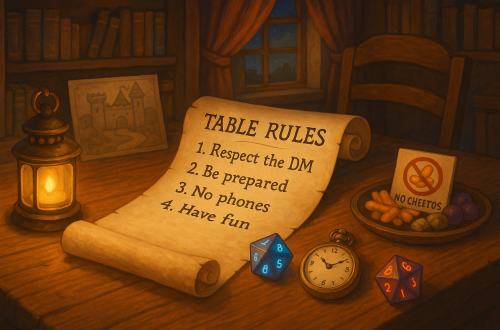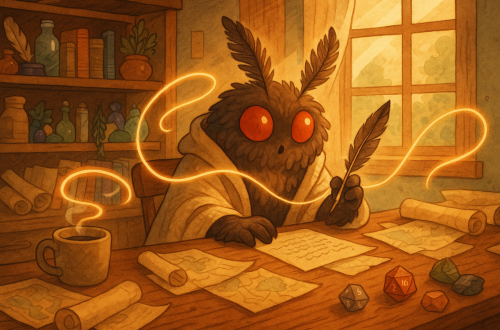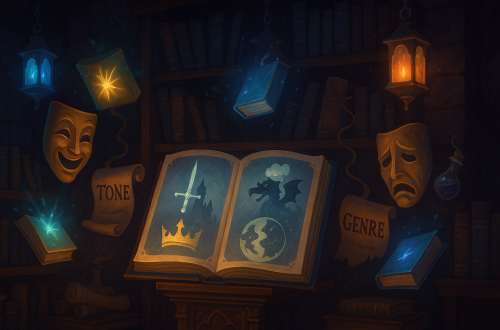Session Zero: The Ties That Bind
You’ve built your world. Picked your genre. Set the tone. Agreed not to roll dice in the guacamole. Now it’s time to ask the question that turns individual characters into a story worth telling:
Why are these people together?
Not just “because the plot says so,” but truly—what binds them? What history do they share? What promises have been made, debts owed, pranks un-avenged? While a group of strangers meeting in a tavern can get the job done, a party with shared pasts and tangled loyalties is storytelling gold.
Why Bonds Matter
Character bonds are the narrative thread that ties a party together. They give players a reason to care about each other’s choices. A party that starts the game already emotionally entangled is a party that reacts together when something goes sideways—because that wasn’t just a random wizard who exploded. That was Gary, and Gary taught you how to play cards.
These connections also help smooth over party friction. When everyone has some sort of link, it’s easier to stay united during disagreements. You’re not just five adventurers sharing a room; you’re five people who know each other, for better or worse.
How to Build Them
The best way to build character bonds is to talk about them during Session Zero. Give players the opportunity to decide how their characters know each other. Maybe they travelled together once. Maybe one hired the other for a doomed expedition. Maybe two of them survived a particularly aggressive sentient mushroom.
You don’t need full-blown soap opera plotlines from the start—just a few shared memories, promises, or grievances. It helps to offer prompts, like “Who do you trust with your life?” or “Who did you offend, and why haven’t you apologized?” Encourage each player to form at least one or two connections, ideally with different party members.
Triangles, Not Just Lines
If you want to get fancy, try creating relationship triangles. Maybe Player A and Player B are old war buddies. Player B also mentors Player C, but Player C resents Player A for reasons they haven’t shared. These small dynamics ripple outward and give the group a richer, more lived-in feel.
It’s less about complexity and more about creating a network of emotional ties, so when someone acts out, everyone feels it—and when someone steps up, it means something.
Let It Evolve
Not every bond needs to be perfect from the start. Some will shift as the story unfolds. Relationships deepen through shared danger, awkward campfire conversations, and failed persuasion checks at the worst possible time. That’s the fun of it.
Just make sure that, from the beginning, your characters aren’t five loners waiting for plot glue. Give them a reason to care about each other, even if it’s just a shared grudge against the same cursed goose.




